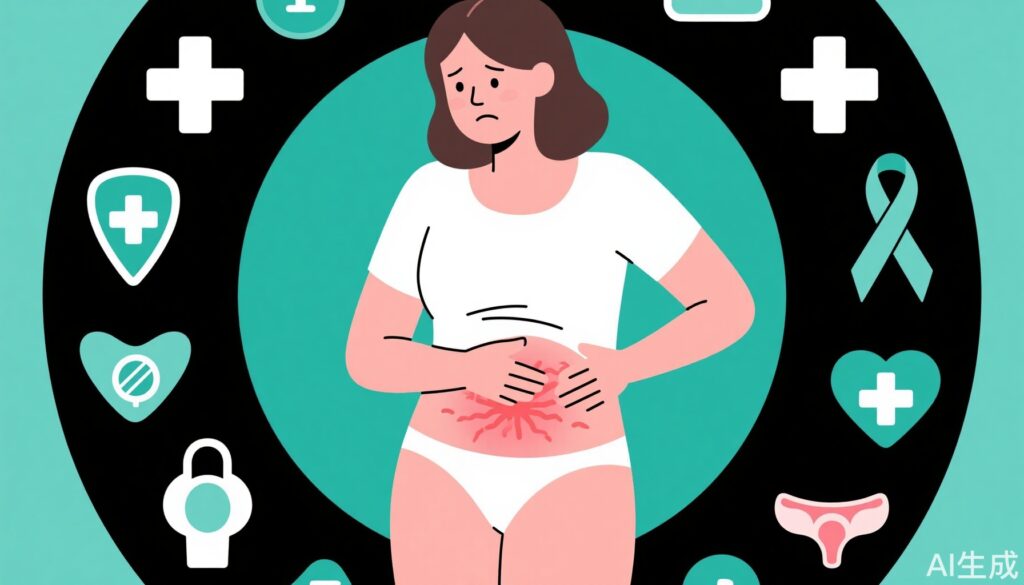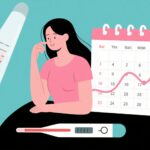Introduction
Ovarian cancer is a covert malignant tumor within the female reproductive system. Early symptoms are often subtle and easily overlooked or mistaken for other conditions. Many women experience itching in various body parts, which usually do not indicate serious health issues. However, understanding the potential implications of these symptoms is vital for early detection of ovarian cancer. This article focuses on analyzing the three common areas of itching during the early stages of ovarian cancer to help women stay alert and seek timely medical advice.
Significance of Early Detection in Women’s Health
Early identification and diagnosis of ovarian cancer play a critical role in improving treatment outcomes and survival rates. Its symptoms often resemble those of other common diseases, leading many women to disregard early warning signs. Itching sensations, in particular, may be attributed to skin conditions or allergies, but sometimes they signal underlying ovarian cancer. This article explores the three key areas where itching is noted in early ovarian cancer, aiming to increase awareness and encourage early consultation with healthcare professionals.
1. Itching in the Abdominal Area
- Possible Causes: Early ovarian cancer can cause physiological changes in the abdomen, such as tumor growth pressing on surrounding tissues, which may lead to itching sensations. This itching often occurs alongside discomfort, bloating, or a feeling of fullness in the abdomen.
- Common Misdiagnoses: Many women associate abdominal itching with indigestion, premenstrual syndrome, or other frequent abdominal ailments, causing them to overlook the potential severity of the symptom.
- Health Recommendations: Persistent abdominal itching accompanied by symptoms like decreased appetite or weight changes warrants prompt medical evaluation to rule out ovarian cancer and other serious conditions.
2. Itching in the Genital Area
- Possible Causes: Genital itching is typically linked to vaginal infections such as vaginitis or fungal infections. However, during early ovarian cancer stages, tumors may induce local tissue changes that cause discomfort and itching.
- Common Misdiagnoses: Women often attribute genital itching to infections or allergies and may self-medicate with antibiotics or topical treatments, inadvertently delaying proper diagnosis of ovarian cancer.
- Health Recommendations: Persistent genital itching should prompt a professional gynecological examination to exclude ovarian cancer and other serious gynecological diseases.
3. Itching in the Legs
- Possible Causes: As ovarian cancer progresses, it can affect blood circulation in the lower limbs, causing itching sensations. Though less common, this symptom deserves attention.
- Common Misdiagnoses: Leg itching is often attributed to dry skin, allergies, or varicose veins, leading to underestimation of its seriousness.
- Health Recommendations: If leg itching is accompanied by swelling, pain, or other symptoms, a thorough medical evaluation is necessary to identify any underlying conditions including ovarian cancer.
Additional Knowledge and Preventive Measures
- Risk Factors for Ovarian Cancer: Family history, age, hormone replacement therapy, and other factors increase ovarian cancer risk. Regular health check-ups are essential for women, especially those at higher risk.
- The Importance of Early Screening: Early detection significantly improves cure rates. Routine gynecological exams and self-monitoring can help identify symptoms early.
- Healthy Lifestyle Practices: Maintaining a balanced diet, engaging in moderate exercise, and managing stress effectively contribute to reducing ovarian cancer risk.
Conclusion
Early ovarian cancer symptoms are often subtle and easily confused with benign conditions, especially itching in the abdomen, genital area, and legs. Women should remain vigilant and seek medical attention if these symptoms persist or worsen. Understanding the risk factors and symptoms of ovarian cancer enhances health awareness and empowers women to protect themselves against this disease. Regular medical check-ups and attentive monitoring of bodily changes are crucial responsibilities for every woman committed to her health.


